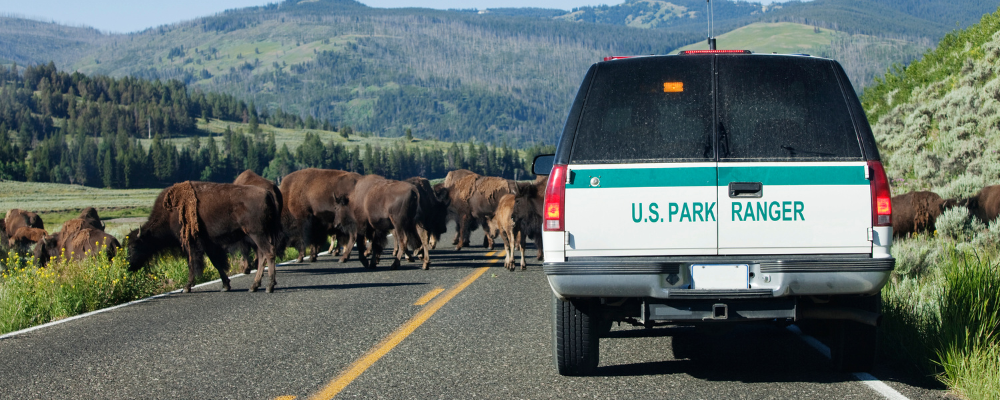News
What It Takes to Be a Park Ranger

If you frequently daydream about being outdoors, you may have already thought about working for the national parks. It's a win-win situation for those who love the outdoors: they get paid to develop new skills, spend time outdoors in the nation's enormous open spaces, and actively contribute to their preservation and public awareness.
Therefore, if you enjoy being outside and get thrilled by the experience of misty mornings or the smell of dew, you might make a fantastic park ranger. That's not all, though. Once upon a time, the sole requirement for becoming a ranger was a love of the outdoors. However, that's no longer the case due to technological advancements and the depletion of natural resources. You have prospects in competitive park ranger jobs thanks to your strong talents and passion for the natural world. But is that all that it takes to become one?
 What is a Park Ranger?In state and national parks, park rangers are responsible for a variety of tasks. They are in charge of enforcing the law within their area of responsibility, policing their park, and ensuring that guests adhere to any relevant rules and regulations. They are frequently trained as peace officers. Park rangers may conduct investigations into crimes, administer first aid to injured park visitors, and take part in or direct search and rescue efforts within their park. Park rangers often manage and safeguard parks, recreational areas, and historical sites for the National Park Service or equivalent state agencies. Promoting the conservation of America's natural resources, educating the public about parks and wilderness areas, and preserving park resources as well as visitors to those parks are some of its most essential objectives.
|
The types of Park RangersThe best way to describe a park ranger is as a professional whose job includes the conservation and use of state or national park resources. However, depending on the job level and the state agency where the work is performed, the manner in which this work is performed and the responsibilities associated with this position may be noticeably different.
 Park ranger positions may fall into two career paths:Cultural & Interpretive Park Rangers Park rangers in an interpretation capacity are involved with the park’s day-to-day operations. They could help with visitor programs, educational programs, and recreational programs while also assisting guests with disabilities. Cultural & Interpretive Park Rangers are frequently stationed at visitor engagement points where they are involved in organizing and carrying out formal and informal talks, lectures, and guided and self-guided tours. They frequently engage the public through presentations, demonstrations, and environmental education initiatives, many of which are directed at young people, educational institutions, or civic organizations. Law Enforcement Rangers Law enforcement rangers are fully commissioned police officers with the authority to conduct investigations, make arrests, and carry a sidearm. To ensure that the park's visitors are secure, law enforcement rangers are in charge of managing and securing the area, providing emergency services, and patrolling the grounds. Law enforcement rangers work with special missions teams including K-9, search and rescue, wildfire control, and scuba diving teams. They may patrol on foot, ATV, boat, horseback, snowmobile, or bicycle.
|
|
Steps to becoming a Park RangerApplicants for park ranger positions must be US citizens, have a current US driver's license, and be 21 or older. A bachelor's degree in natural science, such as botany, zoology, geology, environmental studies, or ecology, is typically required of prospective park managers. Candidates having a degree in forestry or park management may be hired more readily. To become a park ranger, you should follow these steps:
Since most parks favor individuals with prior experience, applicants with some volunteer experience in a park are more likely to be hired as park rangers. But it still counts if you've done an internship, worked there or volunteered in a nature preserve or outdoor learning facility.
|
|
Benefits and Drawbacks of Becoming A Park RangerThe position of a park ranger offers very high levels of job satisfaction. Rewards for this work include both personal and professional benefits. On the other hand, a park ranger must make commitments that are unheard of in other professions. Here are some benefits and drawbacks of the job of park ranger before you decide to pursue it. Cons
Pros
|
Work Environment For Park RangersThe government primarily employs park rangers in local, state, and national parks with some agencies providing housing on the grounds of the park where the ranger works. In some cases, parks may even require the rangers to live in the housing provided to hold the position. However, resources can be thinly stretched, depending on the visitor numbers and size of the park. Rangers have to be prepared for every weather condition due to the outdoor nature of their work. Additionally, rangers might have to work in relative isolation, sometimes patrolling backcountry regions depending on the location. Being a park ranger also means you might encounter potentially dangerous scenarios, people, or animals. For example, rangers often encounter hazardous situations when patrolling for illegal activity or drugs.
|
ConclusionThe park ranger works outdoors to patrol campgrounds, trails, and surrounding areas to ensure the safety and happiness of park visitors and the natural environment. To be a successful park ranger, you should be passionate about the conservation of the natural environment, as well as dedicated to preserving the environment and ensuring the safety of visitors.
|
|
|




